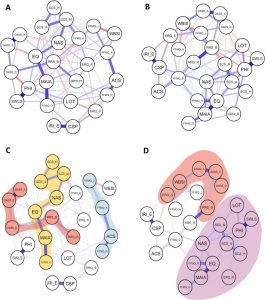Improve Psychological Functioning with Mindfulness
By John M. de Castro, Ph.D.
” the positive potential benefits of mindfulness practice are more attentional control, more effective emotional regulation, enhanced social relationships, reduced risk for physical ailments, enhanced immune system functioning, and better sleep quality.” – Jason Linder
Over the last several decades, research and anecdotal experiences have accumulated an impressive evidential case that the development of mindfulness has positive benefits for the individual’s mental, physical, and spiritual life. Mindfulness appears to be beneficial both for healthy people and for people suffering from a myriad of mental and physical illnesses. It appears to be beneficial across ages, from children to the elderly. And it appears to be beneficial across genders, personalities, race, and ethnicity. The breadth and depth of benefits is unprecedented. There is no other treatment or practice that has been shown to come anyway near the range of mindfulness’ positive benefits.
The clustering of these benefits may supply a clue as to how mindfulness training is working to improve mental health. This can be investigated by looking at the interrelationships between the effects of mindfulness training. In today’s Research News article “Does mindfulness change the mind? A novel psychonectome perspective based on Network Analysis.” (See summary below or view the full text of the study at: https://www.ncbi.nlm.nih.gov/pmc/articles/PMC6638953/), Roca and colleagues apply network analysis to investigate the interrelationships between a large number of effects of Mindfulness-Based Stress Reduction (MBSR) training.
They recruited healthy adult participants in a Mindfulness-Based Stress Reduction (MBSR) program. The MBSR program consisted of 32 hours of training separated into 8 weekly group sessions involving meditation, yoga, body scan, and discussion. The patients were also encouraged to perform daily practice. They were measured before and after MBSR training for meditation experience, and psychological and physical health problems, and 5 categories of mindfulness effects; 1) Mindfulness, including five facets, decentering, non-attachment, and bodily awareness, 2) Compassion, including compassion towards oneself and others and empathy, 3) Psychological well-being, including satisfaction with life, optimism, and overall well-being, 4) Psychological distress, including anxiety, stress, and depression, and 5) Emotional and cognitive control, including emotional regulation, rumination, thought suppression and attentional control.
They found that after MBSR training there were significant improvements in effectively all of the five categories. This is not new as much research has demonstrated that mindfulness training produces improvements in mindfulness, compassion, psychological well-being, psychological distress, and emotional and cognitive control.
These data were then subjected to network analysis. Prior to MBSR training the network analysis revealed clustering in three paths “mindfulness and self-compassion; clinical symptoms and rumination; and most of FFMQ mindfulness components with attentional control measure.” After MBSR training, however, there was a network reorganization such that the three paths disappeared and were replaced by two paths, psychopathological and adaptive.
Centrality measures in the network analysis indicated that both prior to and after MBSR training the most central, fundamental, and interrelated components were all facets of mindfulness and all well-being measures. In addition, Community Analysis revealed that mindfulness, compassion, and emotional regulation were the most highly associated components.
The results are complex but suggest that Mindfulness-Based Stress Reduction (MBSR) training reorganizes the associations of psychological variables, simplifying them into two categories representing distress and adaptation. The training may help the individual see the interrelationships of the problems they have and the solutions employed. The results further suggest, not surprisingly, that mindfulness, compassion, and emotion regulation are central to the benefits of mindfulness training. Many other benefits flow from these.
So, improve psychological functioning with mindfulness.
“Mindfulness-Based Stress Reduction . . . Participants experienced significant decreases in perceived stress, depression, anxiety, emotional dysregulation, and post-traumatic stress symptoms.” – Carolyn McManus
CMCS – Center for Mindfulness and Contemplative Studies
This and other Contemplative Studies posts are also available on Google+ https://plus.google.com/106784388191201299496/posts and on Twitter @MindfulResearch
Study Summary
Roca, P., Diez, G. G., Castellanos, N., & Vazquez, C. (2019). Does mindfulness change the mind? A novel psychonectome perspective based on Network Analysis. PloS one, 14(7), e0219793. doi:10.1371/journal.pone.0219793
Abstract
If the brain is a complex network of functionally specialized areas, it might be expected that mental representations could also behave in a similar way. We propose the concept of ‘psychonectome’ to formalize the idea of psychological constructs forming a dynamic network of mutually dependent elements. As a proof-of-concept of the psychonectome, networks analysis (NA) was used to explore structural changes in the network of constructs resulting from a psychological intervention. NA was applied to explore the effects of an 8-week Mindfulness-Based Stress Reduction (MBSR) program in healthy participants (N = 182). Psychological functioning was measured by questionnaires assessing five key domains related to MBSR: mindfulness, compassion, psychological well-being, psychological distress and emotional-cognitive control. A total of 25 variables, covering the five constructs, were considered as nodes in the NA. Participants significantly improved in most of the psychological questionnaires. More interesting from a network perspective, there were also significant changes in the topological relationships among the elements. Expected influence and strength centrality indexes revealed that mindfulness and well-being measures were the most central nodes in the networks. The nodes with highest topological change after the MBSR were attentional control, compassion measures, depression and thought suppression. Also, cognitive appraisal, an adaptive emotion regulation strategy, was associated to rumination before the MBSR program but became related to mindfulness and well-being measures after the program. Community analysis revealed a strong topological association between mindfulness, compassion, and emotional regulation, which supports the key role of compassion in mindfulness training. These results highlight the importance of exploring psychological changes from a network perspective and support the conceptual advantage of considering the interconnectedness of psychological constructs in terms of a ‘psychonectome’ as it may reveal ways of functioning that cannot be analyzed through conventional analytic methods.
https://www.ncbi.nlm.nih.gov/pmc/articles/PMC6638953/
